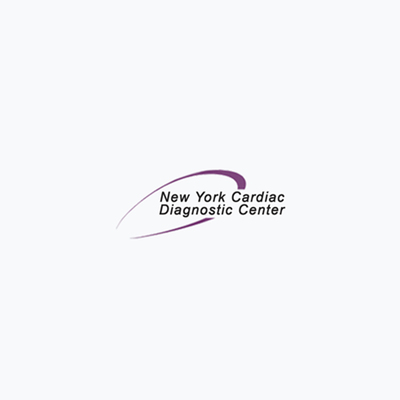
When a medical condition involves your heart or aorta, you must take it seriously. Aorta disease is a life-threatening condition if ignored. There are many causes for medical issues with your aorta, which is the largest and most important artery in your body. Marfan syndrome is one cause that your heart doctor NYC at the Cardiology Manhattan Center can identify. If you do suffer from Marfan syndrome, you can take steps to prevent aorta disease.
The largest artery in your body, the aorta delivers oxygenated blood from your heart to the rest of your body. When your heart is hampered by disease, it affects your entire body because every cell needs a constant supply of the nutrients your blood carries. When your aorta is damaged, the blood may never reach the rest of your body, even if your heart is strong.
Aorta disease develops over time. When the symptoms progress to a tipping point, the hidden damage shows itself. By that point, you need immediate medical attention from the best cardiac doctors of our cardiology practice. Advanced aorta disease causes your aorta to split, which is called a dissection. When the disease causes the aorta to dilate, that’s called an aneurysm. Both can be fatal.
Types of Aortic Aneurysms
Aortic aneurysms fall into three categories:
- Abdominal aortic aneurysms. If a rupture occurs in your aorta, it can result in fatal bleeding if not stopped with emergency surgery. Symptoms include back pain, feeling a pulse in your bellybutton area and a consistent, deep pain in your abdomen or on the side of your abdomen.
- Thoracic aneurysms. When experiencing pain from a thoracic aneurysm, you feel an intense pulsing pain in your chest.
- Thoracoabdominal aneurysms. When an aortic wall weakens from the effect of ballooning, it can eventually rupture your aorta. Then you need emergency surgery.
Marfan Syndrome Symptoms
Marfan syndrome is a connective tissue disorder affecting your heart and blood vessels. It can also affect your eyes, bones and ligaments. If you suffer from Marfan syndrome, you don’t have the protein in your body that allows you to strengthen your connective tissue. Without this protein, called fibrillin 1, you don’t grow and develop properly.
Marfan syndrome sufferers are more likely to get aorta disease than others, so it helps to know if you have it. While the symptoms of Marfan syndrome vary from person to person, they typically include:
- A tall and slender build
- Heart murmurs
- Inordinately long arms, fingers, legs and toes
- A breastbone that either protrudes out or dips in
- Abnormal curvature of the spine
- Flat feet
- Crowded teeth
Diagnosing the Cause of Marfan Syndrome
The primary cause of Marfan syndrome is a defect in the gene responsible for protein production. This defect stops your ability to build connective tissue that’s strong and elastic. And without this connective tissue, results can include aorta disease.
To determine if you have Marfan syndrome, your Manhattan heart doctors has to conduct a Marfan syndrome test. Because the symptoms of connective tissue disorders often mirror each other, Marfan symptom is a difficult condition to identify. A Marfan syndrome genetic test may be required. Diagnostic tests for Marfan syndrome include:
- This Marfan syndrome test employs sound waves that show live images of your heart as it’s functioning. Your local cardiologist doctor reviews your heart valves, along with the size of your aorta to make sure your heart anatomy is normal.
- Eye tests. A slit-lamp exam tests you for cataracts, lens dislocation or a detached retina. An eye pressure test determines if you have glaucoma, which happens when the pressure in your eye remains elevated for a long period of time. Glaucoma is a symptom of Marfan syndrome.
- Genetic testing. If you have the genetic mutation, it was likely passed down to you from your parents. A Marfan syndrome genetic test confirms if this is the case.
- Abdominal aorta ultrasound. This non-invasive procedure uses high frequency sound waves to take images of your aorta to identify any problems. If your aorta grows to over three centimeters in diameter, you have an abdominal aortic aneurysm.
Read more: https://newyorkcardiac.com/marfan-syndrome
New York Cardiac Diagnostic Center
Upper East Side
115 East 86th Street
New York, NY 10028
(212) 860-0796
Midtown
200 West 57th Street, Suite 200
New York, NY 10019
(212) 860-1650
Financial District / Wall Street
65 Broadway Suite 1806
New York, NY 10006
(212) 860-5404
Web Address https://newyorkcardiac.com
https://newyorkcardiac.business.site/
E-mail info@newyorkcardiac.com
Our locations on the map:
Upper East Side https://g.page/Cardiologist-Upper-East-Side-NYC
Midtown https://g.page/New-York-Cardiology-Midtown-NYC
Financial District / Wall Street https://g.page/New-York-Cardiology-Downtown-NYC
Nearby Locations:
Upper East Side
Yorkville | Manhattan | Lenox Hill | Carnegie Hill | East Harlem
10028, 10075, 10128 | 10021 | 10029 | 10035
Nearby Locations:
Midtown
Hell`s Kitchen | Little Brazil | Lenox Hill | Diamond District
10019 | 10036 | 10021 | 10017
Nearby Locations:
Financial District / Wall Street
World Trade Center | Two Bridges | Tribeca | Lower East Side
10007 | 10002 | 10003, 10009
Working Hours:
Monday: 8 am - 5 pm
Tuesday: 8 am - 5 pm
Wednesday: 8 am - 5 pm
Thursday: 8 am - 5 pm
Friday: 8 am - 5 pm
Saturday: Closed
Sunday: Closed
Payment: cash, check, credit cards.
















.png)
.png)








Leave Your Comment & Rating Below
0 Comment(s)